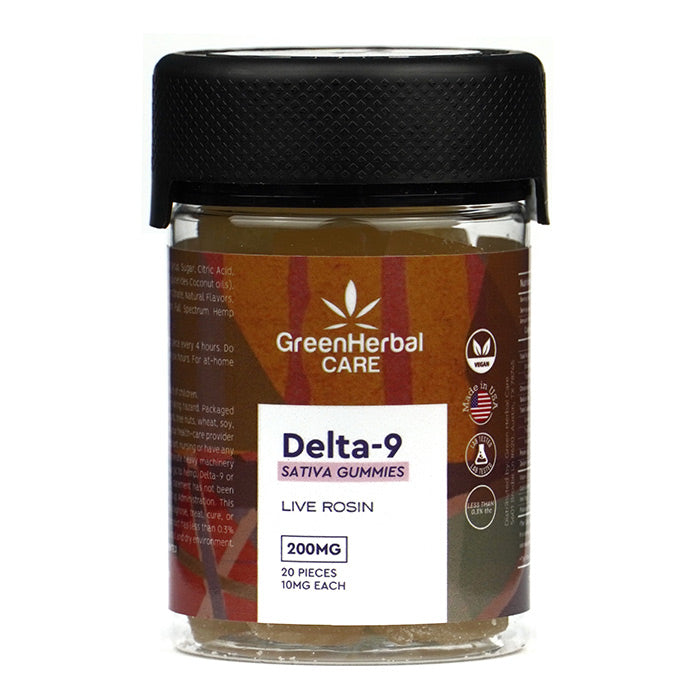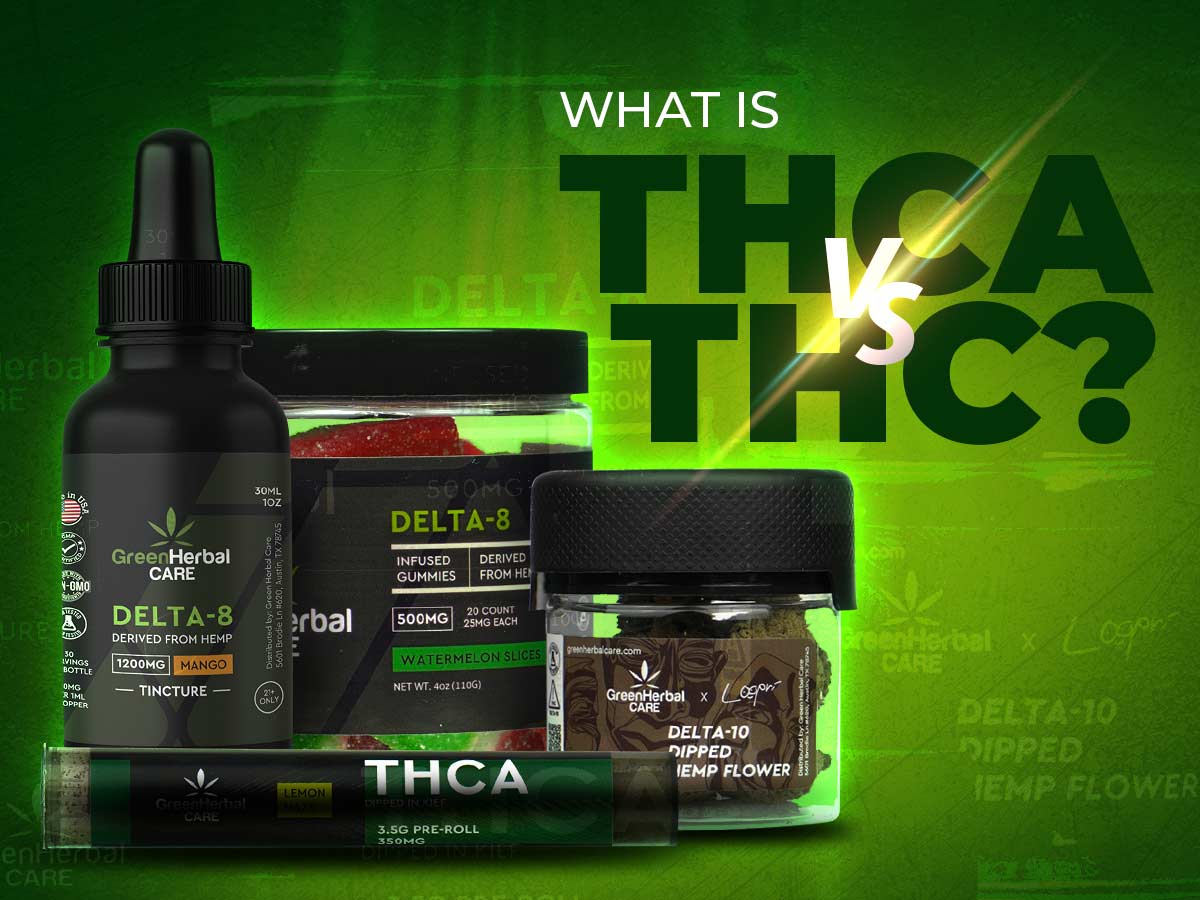As the cannabis industry evolves, understanding the nuances between its compounds becomes essential. Two primary cannabinoids, Tetrahydrocannabinolic Acid (THCA) and Tetrahydrocannabinol (THC), play significant roles in the plant's effects and benefits. While they share a similar chemical lineage, their properties, effects, and applications differ markedly. This guide delves deep into the distinctions between THCA and THC, providing clarity for consumers, medical professionals, and enthusiasts alike.
What is THCA?
Tetrahydrocannabinolic Acid (THCA) is a non-psychoactive cannabinoid found in raw cannabis. It’s the precursor to THC and is typically found in THCA products like flower, tinctures, or raw cannabis juice. THCA doesn't produce a high unless it undergoes decarboxylation—a process triggered by heat (smoking, vaping, or baking), converting it into psychoactive THC.
This is why buying THCA flower appeals to many users seeking a non-psychoactive cannabis experience or those exploring potential health benefits without the intoxicating effects of THC.
What is THC?
Tetrahydrocannabinol (THC), especially Delta-9 THC, is the well-known psychoactive compound that produces the “high” typically associated with cannabis. If you’re interested in exploring legal THC options, you can find Delta 9 THC for sale through select vendors.
THC binds to CB1 receptors in the endocannabinoid system (ECS), influencing mood, memory, pain perception, and appetite. It’s widely consumed via edibles, tinctures, vapes, and smokable products.
THCA vs THC: Chemical Structure & Effects
- THCA has a carboxyl group, making it too large to bind with CB1 receptors, resulting in non-psychoactive effects.
- THC binds directly with CB1 receptors, causing its signature high.
While THCA is non-intoxicating, it’s gaining attention for potential benefits, including:
- Anti-inflammatory properties (useful for arthritis, fibromyalgia)
- Anti-emetic (may help with nausea)
- Neuroprotective potential (research ongoing for conditions like Alzheimer’s and Parkinson’s)
Conversely, THC is often sought after for:
- Euphoria and relaxation
- Appetite stimulation
- Pain relief
- Anxiety management
- Potential help with addiction recovery by reducing cravings for substances like opioids
Shop THCA Products
Potential Benefits of THCA
- Appetite stimulation
- Anti-spasmodic - prevents muscle spasms
- Anti-inflammatory - treats diseases like fibromyalgia and arthritis
- Analgesic - relives pain
- Antioxidant - counteracts the adverse effects of free radicals
- Helps sleep better
- Anti-emetic - treats nausea and vomiting
- Neuroprotective - helps treat neurodegenerative diseases like Alzheimer’s and Parkinson’s
How is THCA Converted to THC?
Decarboxylation is the process that activates THC. When you light a joint, vape, or bake cannabis, the heat removes the carboxyl group from THCA, turning it into THC. Even without direct heat, time, moisture, and environmental factors can gradually convert THCA into THC.
This is why Delta 8 joints and Delta 8 THC carts also offer milder psychoactive effects—because Delta-8 is a different cannabinoid derived from hemp, known for its more gentle high compared to Delta-9 THC.
Smoking THCA vs THC: Which is Stronger?
Smoking THCA and THC produces the same effects because THCA transforms into THC with heat. Easy? Not quite so. For instance, THCA flower means freshly harvested cannabis. It isn’t necessary that the THC flowers you bought were made from freshly harvested cannabis plants. They could be from mature plants whose THCA content was already converted to THC when the flowers were harvested.
Additionally, younger cannabis plants contain a different set of cannabinoids than older ones. Also, individuals will have different experiences due to their unique perspectives and physical characteristics.
Finally, THCA flowers give you more flexibility with higher THCA percentages. Since only 0.3% THC is legal, it’s hard to find THC flowers with potency higher than that limit.
THCA vs THC: Which Stays in Your System Longer?
Several factors contribute to the duration of these cannabinoids staying in your body, including dosage, consumption frequency, metabolism, etc. You may even ask if THCA is detectable in a drug test. Answer: if it is pure and is in its acidic nature (unheated) in the digestive tract, you are probably safe, as the test won’t detect it as a THC-COOH (marijuana metabolite). However, it’s still risky, and you shouldn’t consume THCA before when a test is lined up.
Once THCA is decarboxylated, it will be metabolized as a THC metabolite or THC-COOH. It is the same metabolite that THC breaks down into when your system processes it. This is also the same metabolite that drug tests are designed to detect.
Regardless of the consumption method, THC will always break down into THC-COOH. Since it’s fat-soluble, THC has a long half-life.
The duration of the residual THC metabolites staying in the body depends on your consumption habits, too. Those who smoke it frequently need longer for the body to flush out THC than those who seldom use it.
The typical duration of THC in your body is:
- Blood: 12 hours
- Saliva: 24 hours
- Urine: 30 days
- Hair: 90 days
Differences Between THCA and THC

The non-psychotropic cannabinoid present in raw and live cannabis is known as THCA or tetrahydrocannabinolic acid. The psychoactive cannabinoid that is active is called THC, or Delta-9-tetrahydrocannabinol. They have remarkably similar chemical makeup. The presence of a carboxyl group in THCA distinguishes the two cannabinoids from one another.
The CB1 and CB2 receptors in our ECS do not respond well to THCA. Due to its three-dimensional form and bigger size, which prohibit it from fitting into CB1 receptors, it is not psychoactive. Moreover, it seems like THCA and some of the other cannabinoids in acid form may function to inhibit COX-1 and COX-2 enzymes, potentially reducing pain and inflammation. These enzymes generate prostaglandins, which support heat, discomfort, and inflammation.
Possible Benefits of THC
In addition to the potential advantages of THCA previously mentioned, THC may also have the following benefits.
- Increased Metabolic Output may reduce Body Max Index (BMI), diabetes rates, and obesity caused by nutrition.
- THCA is found in topicals, tinctures, capsules, and raw cannabis juice, whereas THC is present in every cannabis delivery modality.
- By lowering the urge to use reward-based substances like opioids, heroin, and alcohol, addiction treatment options are available. It makes finishing an opioid treatment program more likely
- Anxiolytic by boosting levels of anandamide, a natural brain chemical that regulates anxiety and several other bodily processes.
- Vasodilation, which could lessen glaucoma-related discomfort and ocular pressure.


